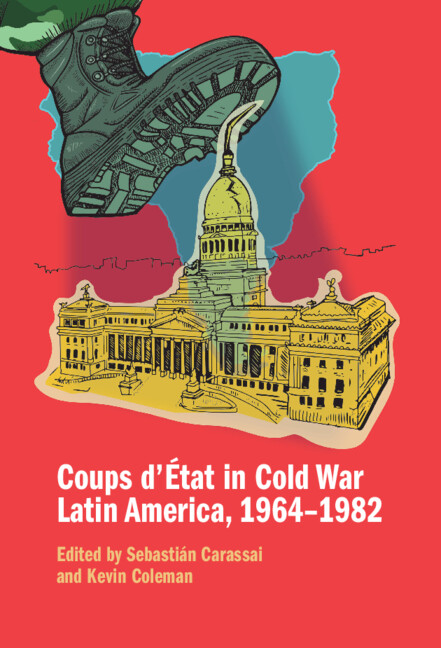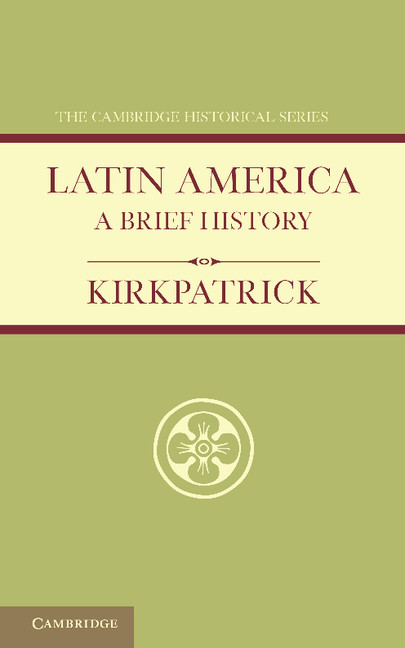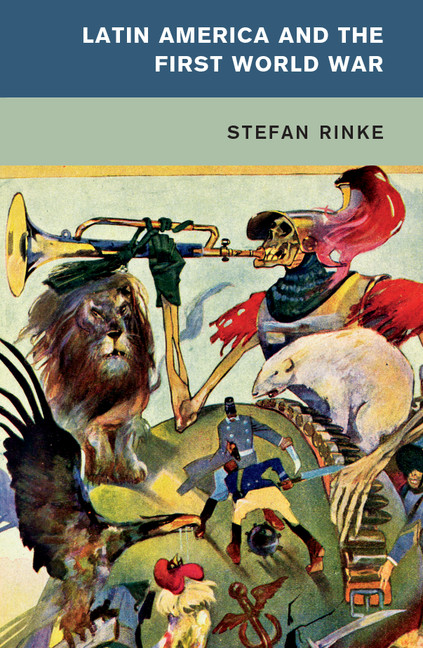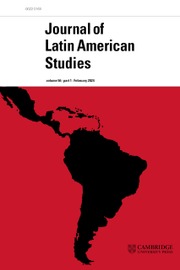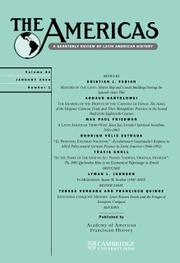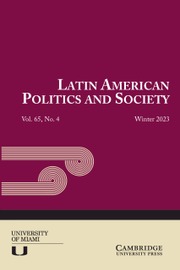Coups d'État in Cold War Latin America, 1964–1982
The latest series of coups d'état in Latin America has left an enduring impact on the region's contemporary landscape. This book employs a comparative methodology that illuminates distinct national contexts, scrutinizing the fundamental causal factors that precipitated coups in Brazil, Bolivia, Peru, Honduras, Uruguay, Chile, Argentina, El Salvador, and Guatemala. The essays answer the following questions: when was a given transfer of power defined as a coup d'état? What were the objectives in overthrowing an existing regime? What role did the US government play, as well as local political actors? What were the various options considered by different sectors within each country? What kinds of resistance did the coups face? What were their sources of support? By comprehensively exploring these questions across each national case, this book dismantles the belief that the coups can be grouped into a single category, and marks the culmination of an era in the subcontinent.
- Includes an introduction that synthesizes how the global and regional context created a conducive framework for the coups to succeed
- Facilitates the comparison of different coup events by using the same set of guiding questions throughout
- Brings together experts from across the field to create a comprehensive analysis of coups d'état in Latin America
Reviews & endorsements
A welcome assessment of the various Latin American military coups. In critical dialogue with the available interpretations of each case, these excellent studies take their cue from substantive common questions to illuminate both the singularities of each scenario and the broad lines that connected the multifaceted regimes of the late twentieth century. Lila Caimari, CONICET (Consejo Nacional de Investigaciones Científicas y Técnicas), Argentina
‘… the most disruptive question that might be asked about the causes of the coups examined by the contributions of this book is, as Weinstein notes with refreshing candour, whether these reflected not too little democracy - but too much. If even contemplating such a notion takes your breath away, then it is doing precisely what challenging scholarship should be doing, especially in an era when we are struggling to understand the rise of anti-democratic forces in our own midst.’ Gavin O'Toole, Latin American Review of Books
Product details
May 2025Hardback
9781009344838
288 pages
235 × 160 × 20 mm
0.56kg
Available
Table of Contents
- Introduction: Coups D'état in cold war Latin America, 1964–1982 Sebastián Carassai and Kevin Coleman
- 1. 'Deus, Pátria, Família' across the Decades: Moralism, Authoritarianism, and the Brazilian Military Coup of 1964 Benjamin A. Cowan
- 2. The limits of superpower: US developmentalists and the local origins of Bolivia's 1964 Coup Thomas C. Field
- 3. The Velasco revolution in Peru, 1968-1975 Peter Klarén
- 4. The Making of a reformist coup: general López Arellano and land reform in Honduras, 1972–1975 Kevin Coleman
- 5. The Uruguayan coup d´Etat in historical perspective: an ever longer path toward authoritarianism Vania Markarian
- 6. Chile 1973, September 11: politics, protest, and the making and unmaking of the democratic road to socialism Camilo Trumper
- 7. 'They're leaving and never coming back!': from the return of peronism to the return of the Military, Argentina 1973–1976 Sebastián Carassai
- 8. El Salvador 1979: reform or repression Jeffrey L. Gould and Heather Vrana
- 9. Coups and communism in Guatemala, general Efraín Ríos Montt, 1982–1983 Virginia Garrard
- Afterword: the dictatorships and their afterlives Barbara Weinstein.

